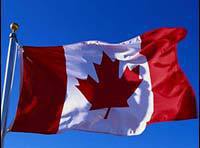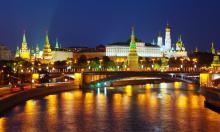Canada Stabs Russia in the Back
The relations between Russia and NATO have been put to the test. One of the members of the North Atlantic Alliance – Canada – blocked the approval of all documents which were supposed to be discussed at the meeting of foreign ministers of Russia and NATO members on December 4.

The talks, which are to take place this Friday in Brussels, are supposed to become the first meeting of the Russia-NATO Council on the level of foreign ministers after the completion of the war in South Ossetia. Last year, the alliance suspended the work of the council over its disagreement with Russia’s actions during the war.
On December 4, the ministers are expected to gather in Brussels to discuss the development of cooperation between Russia and NATO.
No one said that the meeting can be canceled. However, it can become a formal gathering over Canada’s stance.
“Canadian officials blocked the approval of all documents at the meeting of the Russia-NATO Council. It means that there is a faction being created inside NATO, and this faction stands against the reset of relations with Russia,” Russia’s Ambassador at NATO, Dmitry Rogozin said December 1.
“The very essence of the work of the council has been taken away from the documents. Our partners strongly reject all of our attempts to designate the perfection of the European security as the goal of the Russia-NATO Council. They are trying to pack our initiative in some other international forms of negotiations,” Rogozin stated.
“Since all questions at NATO are solved through a consensus, any delegation has a right to block a situation, and this is what we have today,” the official added.
Dmitry Rogozin also said that Britain and the Baltic States supported Canada’s anti-Russian stance.
“We are not going to add more drama to the situation. Lavrov (Russia’s Foreign Minister) will come and conduct negotiations in accordance with the agenda which we consider positive. Maybe the events that have just happened are useful because it shows that NATO as a military block is not ready to build an equitable partnership with Russia,” Rogozin concluded.
Canadian officials have not released any statements yet. NATO’s spokesman James Appathurai spoke instead. Mr. Appathurai stated that Canada had not blocked the talks, and added that the talks on several documents related to the upcoming meeting were continuing.
It is worthy of note that Canada has never supported Russia in any of its initiatives during the recent years. Quite on the contrary, when Stephen Harper took the office of the Prime Minister of Canada, he proclaimed the struggle for Arctic natural resources as a top priority of his politics.
Mr. Harper regularly visits northern territories where he personally observes military drills and considers an opportunity to set up a powerful naval base in the area. The financial crisis did not let it all happen.
It is very easy to guess the goal of those plans.
"I have expressed at various times the deep concern our government has with the increasingly aggressive Russian actions around the globe and into our airspace. We will defend out airspace ... we will respond every time the Russians make any kind of intrusion on the sovereignty of Canada," he said in February of this year after a Russian strategic bomber approached Canadian airspace.
Canada conducted military drills in August of the outgoing year. The drills, which lasted for 12 days, took place three weeks after Vladimir Shamanov, the Commander of Russia’s Airborne Troops, said that the Russian troops would land on the North Pole in April of 2010.
If Canada hampers the new dialogue between Russia and NATO, it will prove to be a vehement adversary to new relations between Russia and the West.
Sergey Balmasov
Vadim Trukhachev
Subscribe to Pravda.Ru Telegram channel, Facebook, RSS!




